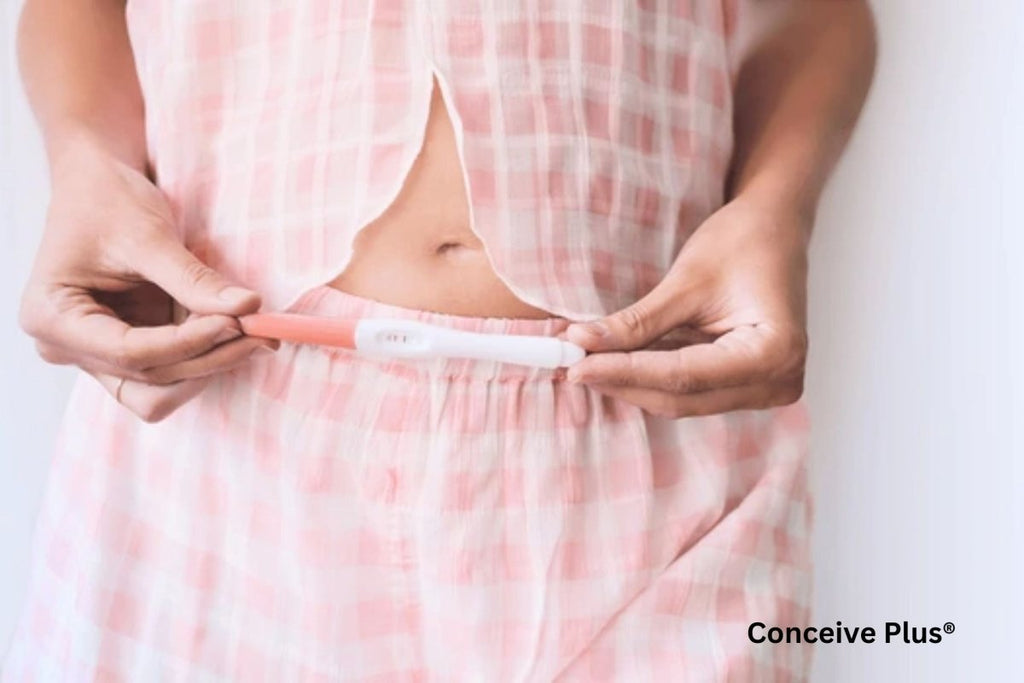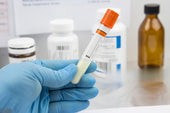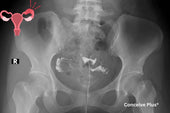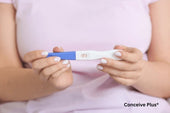I Had Unprotected Sex What Should I Do?
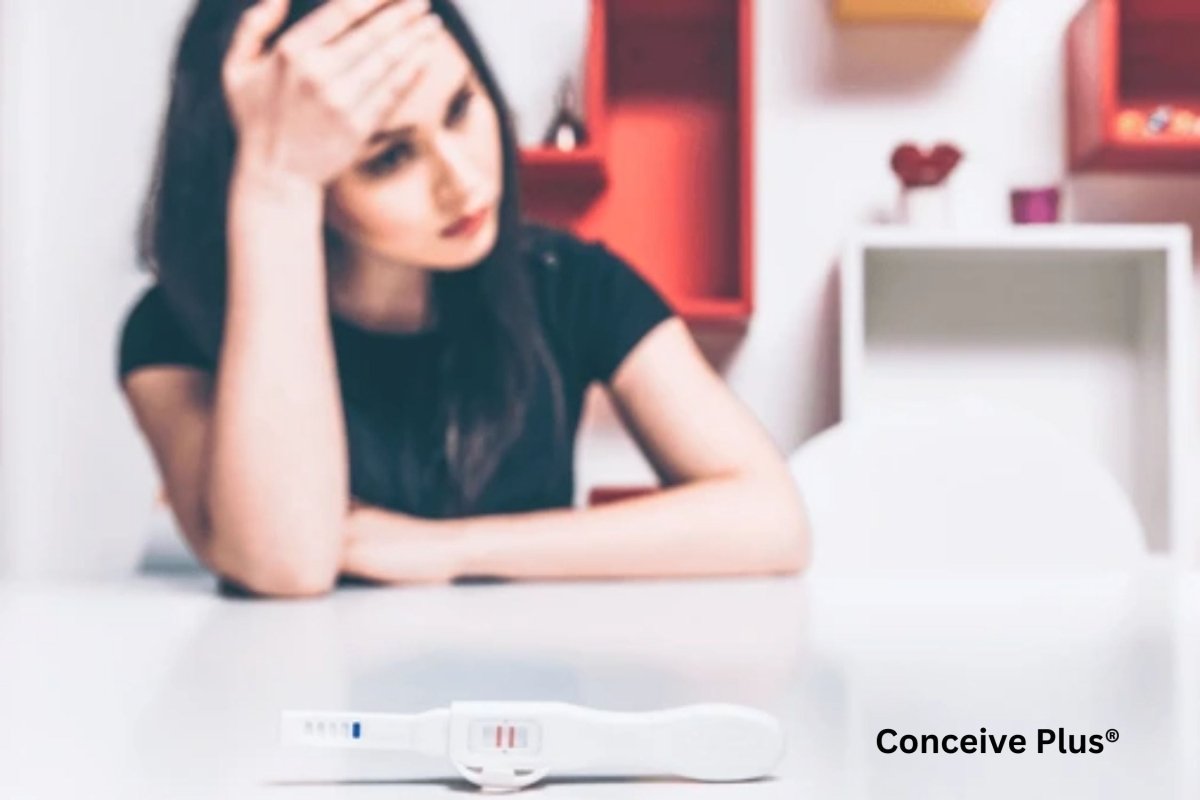
Many women choose contraceptive methods to avoid pregnancy for financial, personal, or lifestyle reasons. However, despite careful planning, unexpected moments can lead to unprotected sex.
When this happens, the most common question that women ask is, “I had unprotected sex what should I do?” Well, unprotected sex doesn’t always lead to pregnancy; it is especially less likely to cause pregnancy if it occurs outside the female fertility window [1].
In this article, we will understand what the female fertility window is, why unprotected sex outside the fertility window is less likely to cause pregnancy, and what are emergency contraception options after unprotected sex.
Difference Between the Female Fertile and Infertile Window
To answer why pregnancy risk varies, you first need to understand the female reproductive or menstrual cycle [2]. A female cycle can be divided into two phases based on pregnancy risk.
One phase, known as the fertile window, is when a woman is most likely to conceive. This period typically spans about six days, including the day of ovulation and the five days leading to ovulation.
Ovulation is when an egg is released from the ovary and is available for fertilization. The egg remains viable for only about 12 to 24 hours, limiting the window for fertilization [1].
On the other hand, the infertile window covers the rest of the menstrual cycle. During this time, even if unprotected sex occurs, the likelihood of pregnancy is significantly lower because there is no egg available to fertilize. However, it is essential to note that the cycle can vary between individuals and even from month to month.

Image Source: https://flo.health/getting-pregnant/trying-to-conceive/fertility/fertile-window
Unprotected Sex in the Fertile Window
When unprotected sex occurs during the fertile window — 5 days before ovulation and the day of ovulation — the chance of pregnancy increases significantly. This is because sperm can live in the female reproductive tract for up to five days, waiting for the egg to be released [1]. When ovulation happens, the conditions are perfect for fertilization.
Even if you miss your predicted ovulation day by a little, there can still be a high risk of pregnancy if sperm are present. This timing is the reason why many emergency contraception options are more effective the sooner you use them after you have unprotected sex [3].
This increased risk during the fertile period is why it is important to understand your cycle, especially if you are relying on natural timing as a method of contraception. Relying solely on the timing of your cycle can be unpredictable, and even slight miscalculations can lead to an unexpected pregnancy.
If you're curious about the actual chances of getting pregnant after one time unprotected sex, check out our article 'What Are The Chances Of Getting Pregnant After One Time Unprotected Sex And Without Contraception' for a comprehensive breakdown.
What to Do After Unprotected Sex
If you are worried I had sex without protection what should I do, there are some options available that can help. These include:
-
Consider Emergency Contraception
Emergency contraception helps prevent pregnancy after unprotected sex by delaying ovulation or preventing fertilization. It has a higher chance of success if used as soon as possible. The two most common emergency contraception options include:
Emergency Contraception Pills (ECPs)
Also known as the “morning-after pill,” these are designed to be taken within a specific timeframe after unprotected sex. The sooner they are taken, the higher the chances they effectively stop pregnancy [4].
There are different types of emergency contraception, such as levonorgestrel pills, commonly known as Plan B, and ulipristal acetate pills [5]. Both work by delaying ovulation, thereby reducing the chance that an egg will be available to fertilize.
Copper IUD
In some cases, a copper intrauterine device (IUD) can be used as emergency contraception if inserted within five days of unprotected sex [6]. The copper IUD works by creating an environment that is toxic to sperm. It also prevents implantation of the egg even if fertilization occurs.
This method is highly effective and offers long-term contraception as well. Reports show that copper IUDs are effective for up to 10 years in preventing pregnancy [6].
-
Consult a Healthcare Provider
If you are uncertain about what steps to take after unprotected sex, consulting a healthcare provider is always a good idea. They can confirm the timing of your cycle and help you assess your risks of pregnancy accordingly.
They will discuss the most appropriate form of emergency contraception based on your health history and provide guidance on when to take a pregnancy test. You can also ask questions or concerns to a healthcare provider that you may have about your reproductive health.
-
Consider Pregnancy Testing
While emergency contraception works to prevent pregnancy, it is important to monitor your cycle afterward. If your period is late or you experience early pregnancy symptoms, such as tender breasts, fatigue, nausea, and frequent urination, it is a good idea to take a home pregnancy test. Keep in mind that pregnancy tests are most reliable when taken after a missed period.
Can Sexual Positions Influence the Chances of Conception?
There is a lot of misinformation regarding whether sexual positions can influence the likelihood of pregnancy. Some myths suggest that certain positions may reduce the risk by “dumping” sperm away from the cervix. However, there is little to no scientific evidence to support these claims.
Pregnancy occurs when a single sperm meets the egg, and sperm can reach the egg once it is inside the female reproductive tract, regardless of the position during intercourse. Therefore, we recommend you focus on proven methods like emergency contraception rather than relying on myths.
Contraceptive Options Before Intercourse
Preventing an unwanted pregnancy is always easier when you plan ahead. Additionally, it helps you avoid the stress of finding the most effective option within a short time after having unprotected sex.
Here are some contraceptive methods available before intercourse:
-
Barrier Methods
Barrier methods of contraception physically block sperm from reaching the egg, preventing fertilization. The two most common options include condoms and cervical cups.
Condoms
Condoms are one of the most accessible and widely used methods. They act as a physical barrier to prevent sperm from reaching the egg. Research shows that, if used accurately, condoms are effective in preventing pregnancy in up to 98% of cases [7]. Besides contraception, condoms also offer protection against sexually transmitted infections (STIs).
Diaphragms and Cervical Caps
These cups are inserted into the vagina before intercourse to cover the cervix and block sperm from entering. They are often used with spermicide — a chemical that immobilizes or kills sperm — to increase effectiveness.
-
Hormonal Contraception
Hormonal contraceptives work by using hormones to stop ovulation, making it harder for sperm to reach an egg, thus, preventing pregnancy. The options include:
Birth Control Pills
Birth control pills are often taken daily, and these pills contain hormones that prevent ovulation. They are effective when used consistently and correctly. Birth control pills also offer additional benefits, such as regulating menstrual cycles and reducing menstrual cramps.
Patches and Rings
The contraceptive patch is applied to the skin and releases hormones over a week, while the vaginal ring is inserted into the vagina and works similarly.
The hormones released are estrogen and progestin, which stop ovulation and thicken cervical mucus, making it harder for sperm to reach an egg and for a fertilized egg to implant [8]. These options offer convenience for those who prefer not to take a pill every day.
-
Long-Acting Reversible Contraception (LARC)
Long-acting reversible contraception includes highly effective birth control methods that provide extended protection without requiring continuous monitoring. The options include intrauterine devices and implants.
There are two main types of IUDs: hormonal and copper. Hormonal IUDs release small amounts of progestin to prevent pregnancy, while copper IUDs use the natural properties of copper to stop sperm from fertilizing an egg. IUDs are highly effective and can last for up to 10 years [6].
On the other hand, the contraceptive implant is a small rod inserted under the skin of the upper arm. It releases hormones that prevent ovulation and is effective for up to three years.
If you're wondering how soon after unprotected sex you can test for pregnancy and get accurate results, check out our guide 'How Soon After Unprotected Can I Test for Pregnancy and Get Accurate Results' for all the details.
Permanent Birth Control Options
For those who are sure they do not want to have children in the future, permanent birth control can be a hassle-free option. These methods are designed to be irreversible, so you need to consider them wisely.
Tubal ligation and vasectomy are the two common permanent birth control options for a couple:
Tubal Ligation
The fallopian tube is where sperm meets the egg, and fertilization normally occurs. Tubal ligation is a surgical procedure for women in which the fallopian tubes are cut, tied, or sealed to prevent the egg from reaching the sperm [9].
This method is highly effective and considered permanent. It is important to note that you should only consider tubal ligation if you are certain you do not want any more children.
Vasectomy
A vasectomy is a surgical procedure for men. It involves cutting or sealing the vas deferens, the tubes that carry sperm from the testicles. Like tubal ligation, vasectomy is intended to be a permanent solution for contraception. Recovery is usually quick, and the procedure is highly effective at preventing pregnancy.
When to Seek Help from a Professional?
If you’ve had unprotected sex and are unsure about what steps to take, it’s important to seek professional guidance. Here are some scenarios in which reaching out for help is recommended:
- Uncertainty About Contraceptive Options: If you are confused about which contraceptive method might be right for you or if you missed your window for emergency contraception, a healthcare provider can help clarify your options.
- Considering Permanent Birth Control: Deciding on a permanent birth control method is a significant decision that should involve professional counseling. If you are considering options like tubal ligation or vasectomy, a consultation with a specialist can help you understand the risks and benefits associated with the procedures.
- Signs of a Health Issue: Sometimes unprotected sex may be accompanied by symptoms or concerns about STIs. If you notice any unusual symptoms — such as pain, unusual discharge, or severe discomfort — it’s important to seek medical attention immediately. Early diagnosis and treatment can prevent complications and ensure your overall well-being.
The Bottom Line
If you recently had unprotected sex, you might be unsure of what to do next. "I had unprotected sex what should I do?" is a common question, and there are several options available to help manage the situation and reduce the risk of unintended pregnancy.
Firstly, you need to understand that a woman is not always fertile throughout her menstrual cycle. So, if you had unprotected sex outside your fertile window, the chances are already low. For added protection, you can go for emergency contraceptive pills that can stop ovulation and avoid pregnancy.
It is always a wise decision to choose a contraceptive method that works before intercourse to avoid stress. These can include condoms, cervical cups, and birth control pills. Permanent contraception options are also available for couples who are certain that they do not want to conceive in the future.
Resources Used
- Pregnancy - identifying fertile days: MedlinePlus Medical Encyclopedia. (n.d.). https://medlineplus.gov/ency/article/007015.htm
- Thiyagarajan, D. K., Basit, H., & Jeanmonod, R. (2024, September 27). Physiology, menstrual cycle. StatPearls - NCBI Bookshelf. https://www.ncbi.nlm.nih.gov/books/NBK500020/
- UpToDate. (n.d.). UpToDate. https://www.uptodate.com/contents/emergency-contraception-beyond-the-basics/print
- Professional, C. C. M. (2025, January 3). Morning-After Pill. Cleveland Clinic. https://my.clevelandclinic.org/health/treatments/23386-morning-after-pill
- Chao, Y., & Frey, N. (2018, November 29). Ulipristal versus Levonorgestrel for Emergency Contraception: A Review of Comparative Clinical Effectiveness and Guidelines. NCBI Bookshelf. https://www.ncbi.nlm.nih.gov/books/NBK538737/
- ParaGard® (Copper IUD). (2025, March 19). Cleveland Clinic. https://my.clevelandclinic.org/health/drugs/17741-paragard-copper-iud
- Steiner, R. J., Liddon, N., Swartzendruber, A. L., Pazol, K., & Sales, J. M. (2017). Moving the message beyond the methods: toward integration of Unintended Pregnancy and Sexually Transmitted Infection/HIV prevention. American Journal of Preventive Medicine, 54(3), 440–443. https://doi.org/10.1016/j.amepre.2017.10.022
- Professional, C. C. M. (2025b, March 19). Vaginal ring. Cleveland Clinic. https://my.clevelandclinic.org/health/articles/24157-vaginal-ring
- Marino, S., Canela, C. D., Jenkins, S. M., & Nama, N. (2024, February 16). Tubal sterilization. StatPearls - NCBI Bookshelf. https://www.ncbi.nlm.nih.gov/books/NBK470377/




